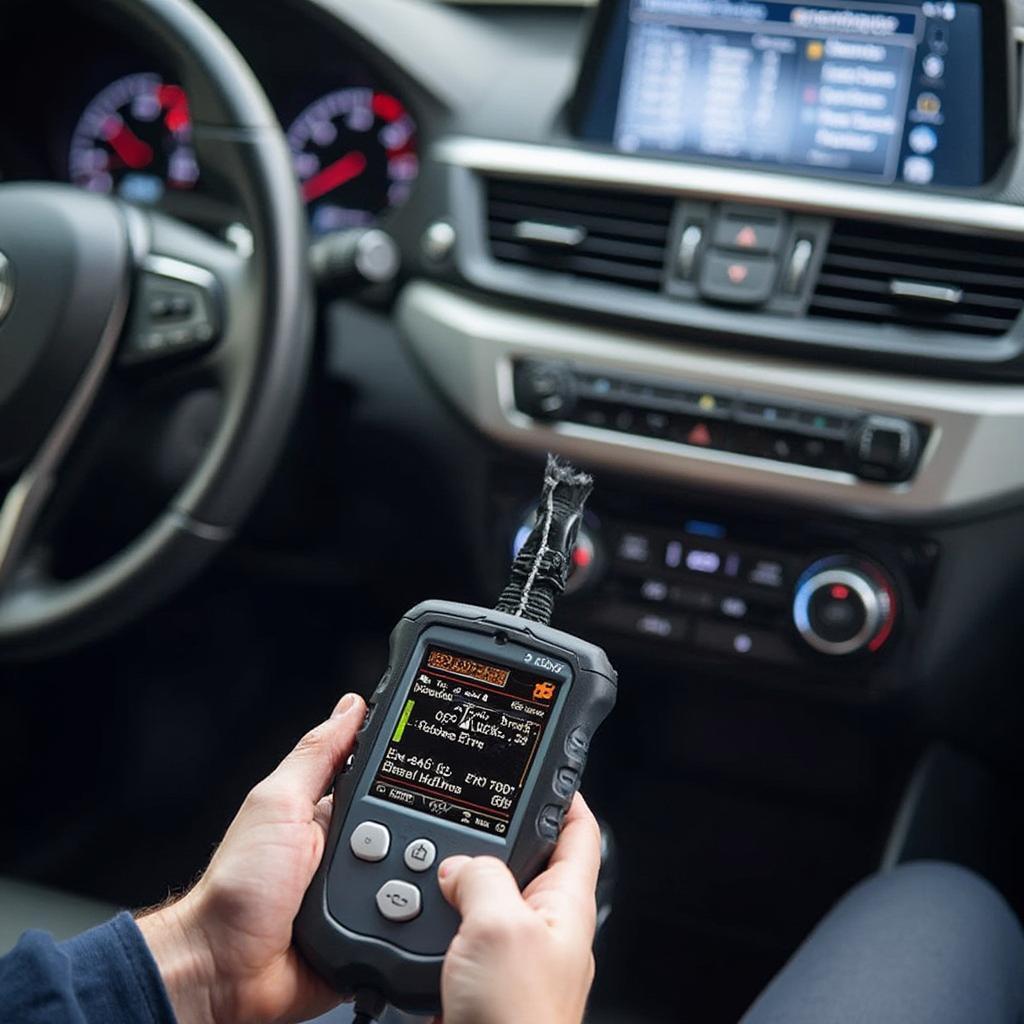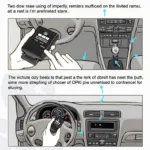An OBD2 restrictor is a device that interacts with a vehicle’s On-Board Diagnostics II (OBD2) system. While the term often sparks curiosity and sometimes confusion, understanding its purpose and functionality is crucial for both car enthusiasts and professionals. This article delves deep into the world of OBD2 restrictors, separating fact from fiction and exploring their various applications.
What Exactly is an OBD2 Restrictor?
OBD2 restrictors, often misunderstood, are not a common or standardized device. The term often arises in contexts like speed limiters or devices designed to bypass emissions regulations, which are generally illegal. It’s vital to distinguish between legitimate uses of the OBD2 port and potentially harmful modifications. Modifying emissions systems can lead to significant environmental damage and legal repercussions.
Misconceptions about OBD2 Restrictors
One common misconception is that an OBD2 restrictor can easily limit a vehicle’s speed. While speed limiters do exist, they are typically integrated into a vehicle’s electronic control unit (ECU) and are not simple add-on devices connected via the OBD2 port. Another misconception is their use in performance tuning. While tuning through the OBD2 port is possible, this is achieved through software modifications, not physical “restrictors.”
Legitimate Uses of the OBD2 Port
The OBD2 port offers numerous legitimate applications, primarily for diagnostics and monitoring. Mechanics use OBD2 scanners to identify and troubleshoot issues, access real-time vehicle data, and monitor sensor readings. This allows for efficient repairs and preventative maintenance. Furthermore, fleet management companies utilize OBD2 devices for tracking vehicle location, driver behavior, and fuel efficiency.
Data Logging and Performance Monitoring
Enthusiasts also leverage the OBD2 port for data logging and performance monitoring. Devices connected to the port can record parameters like speed, RPM, and engine load, providing valuable insights into vehicle performance. This information can be used to improve driving techniques or track modifications’ effectiveness.
 Legitimate OBD2 Port Applications
Legitimate OBD2 Port Applications
The Dangers of Tampering with Emissions Systems
Attempting to bypass emissions controls using devices connected to the OBD2 port is illegal and harmful. These systems are crucial for reducing pollutants and protecting the environment. Tampering with them can result in significant fines and even vehicle confiscation. Always consult with a qualified mechanic for any modifications related to your vehicle’s emissions system.
Understanding Emission Regulations
Emission regulations are in place to safeguard public health and the environment. These regulations vary by region and are constantly evolving to address the challenges of climate change. It’s essential to stay informed about these regulations and ensure your vehicle complies with them.
OBD2 Restrictor: Separating Fact from Fiction
While the term “OBD2 restrictor” may be used colloquially, it’s essential to understand its actual implications. Instead of seeking shortcuts or illegal modifications, focus on legitimate and safe methods for vehicle diagnostics, maintenance, and performance enhancement.
Conclusion
The term “OBD2 restrictor” often generates confusion. It’s crucial to understand that modifying your car’s emissions systems or attempting to bypass regulations is illegal and environmentally harmful. The OBD2 port offers a wealth of legitimate applications for diagnostics, monitoring, and performance analysis. Utilizing these features responsibly empowers car owners and professionals to maintain vehicle health, improve performance, and contribute to a cleaner environment. Remember, responsible use of OBD2 technology is key to maximizing its benefits.
FAQ
-
What is the main purpose of the OBD2 port? The OBD2 port is primarily designed for diagnostics and allows mechanics to access vehicle data for troubleshooting and repairs.
-
Can I use an OBD2 device to improve my car’s fuel efficiency? Yes, some OBD2 devices can monitor fuel consumption and provide insights to help improve driving habits and increase fuel efficiency.
-
Are there legal implications for modifying my car’s emissions system? Yes, tampering with emissions systems is illegal and can result in substantial fines and other legal penalties.
-
Can I use the OBD2 port for performance tuning? Yes, performance tuning can be done through the OBD2 port, typically using software modifications.
-
What should I do if my OBD2 scanner is showing an error code? Consult a qualified mechanic to diagnose and address the issue indicated by the error code.
-
Are OBD2 restrictors a common and standardized device? No, “OBD2 restrictors” as a term is often misused and doesn’t represent a specific, standardized device.
-
Where can I find reliable information about OBD2 technology and its applications? Reputable automotive websites, forums, and professional mechanics are valuable resources for reliable information about OBD2 technology.
If you need further assistance, please contact us via WhatsApp: +1(641)206-8880, Email: [email protected] or visit our office at 789 Elm Street, San Francisco, CA 94102, USA. Our customer support team is available 24/7.

